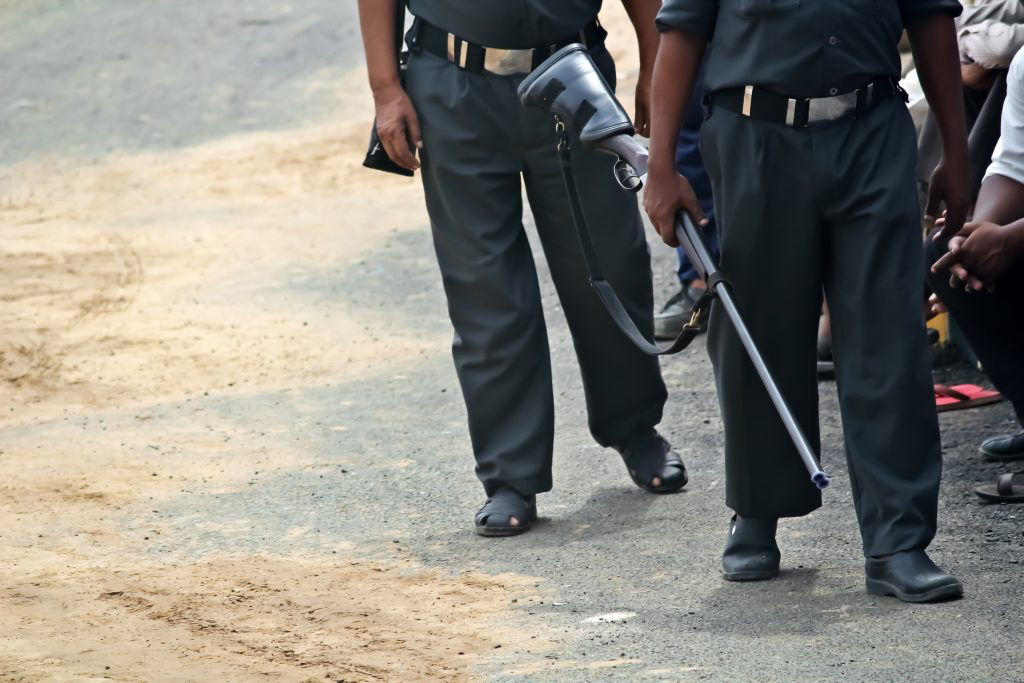
After thirteen SANDF soldiers were killed in the Central African Republic many South Africans sought clarity as to why South African soldiers had been deployed to the CAR and the circumstances that led to the ambush in which the soldiers were killed. However, as more facts came to light the officials in charge stonewalled the questions and the President, Jacob Zuma, and the Minister of Defence and Military Veterans, Nosiviwe Mapisa-Nqakula refused to give details, citing national security concerns. Their emphasis on the need to honour the dead and their repeated assurances that military matters are not for public discussion created the implication that questioning the deaths was beyond the pale.
This governmental response illustrates a disturbing trend in South Africa where officials seem to distort the purpose of certain principles to apply them in such a way that permits them to avoid answering uncomfortable questions. This use of the honour of military deaths and national security is one case in point. The digging up of apartheid-era legislation, the National Key Points Act, to avoid questions on public spending on Zuma’s Nkandla residence is another.
Confidentiality is invoked in a variety of contexts, and when asserted in good faith serves an important purpose, protecting deserving interests and rights. Confidentiality must however operate within parameters that guard against its abuse.
Two cases before court involving the confidentiality provisions in the Refugees Act should warrant consideration. The first case, currently before the South Gauteng High Court, is a judicial review of the decision to grant suspected war criminal Rwandan General Faustin Kayumba Nyamwasa refugee status. The second, in the Constitutional Court, involves the application by various media houses for access to the Refugee Appeal Board hearing in which Czech fugitive Radovan Krejcir will appeal the rejection of his refugee status application. Judgment has been reserved in both matters.
Confidentiality is an essential aspect of all refugee application processes across the globe. Asylum seekers are a uniquely vulnerable group; a group defined by their fear of persecution and inability to avail themselves of their own countries’ protection. Asylum is therefore intrinsically political, because it is related to the willingness or ability of the home country to protect the asylum seeker from persecution. It is this that makes confidentiality so crucial because it assists in preventing information provided to the asylum officials reaching those responsible for causing individuals to flee and seek sanctuary elsewhere. Making public this information could put the asylum seeker and their associates in grave danger by alerting their persecutors to their whereabouts, or by making them more of a target. Fear that their information will not be confidential may also prevent asylum seekers from either applying for refugee status or from being candid in their interviews. It is clear then that for the refugee system to operate effectively and fairly confidentiality must be respected.
It is incontrovertible that some persecutors attempt to use the refugee system as a way to avoid accountability for their actions and to protect themselves from potential repercussions in their home countries. For this reason all refugee systems include an exclusion clause which prohibits countries from granting refugee status to those suspected of committing the international crimes of war crimes, crimes against humanity and genocide as well as other serious non-political crimes. The exclusion clauses are a vital element of the system because they ensure that the integrity of the system is maintained; that only those persecuted and not the persecutors are given the benefits of the system. At the same time the exclusion clauses allow states to uphold their obligations to ensure accountability for international crimes by creating the conditions necessary for prosecution of suspects.
However, in exceptional circumstances confidentiality can frustrate the goals of the exclusion clauses, and of accountable and transparent governance. Applying absolute confidentiality prevents any examination of information provided by an asylum seeker, and of the manner in which that information was interpreted by the decision maker. This shields the decision from scrutiny, and removes the possibility of accountability for bad or incorrect decisions.
This means that, unfortunately, confidentiality can be used to hide irregular decision making in the same way that the National Key Points Act and the reliance on national security concerns has been misapplied. The political nature and foreign policy implications of some asylum applications cannot be ignored: a grant of asylum may be seen as a condemnation of the applicant’s home country’s inability to protect its citizens, while a refusal could be seen as a tacit endorsement of that government. Every year thousands of determinations are made by refugee officials acting independently and fairly, but the fact that absolute confidentiality could enable decisions that are influenced by foreign policy concerns to remain untested means that the principle should be rejected. This does not mean that confidentiality should be dispensed with in all cases – just that a flexible system should be adopted which permits lifting confidentiality in certain, exceptional situations.
It is an inseparable part of a functioning modern democracy that citizens have a right to question – and receive answers from – their political leaders. The litigation around the confidentiality provision in the Refugees Act aims to protect this by finding a balance between ensuring protection for the asylum seekers, and facilitating accountable and transparent decision making in governmental departments.
This is the same basic aim for commentators, journalists and the general public in respect of the CAR and Nkandla. Seeking answers from leaders does not diminish democracy, it enhances it. Sometimes recourse to the courts is required, other times parliamentary questions can provide the answers, but whatever the case, and whatever the route, we must ensure that those avenues remain open for individuals, civil society groups and opposition politicians to ensure that government officials remain accountable to their electorate and act in compliance with the rule of law.
This entry was posted in International Criminal Justice, South Africa. Bookmark the permalink.
You can start editing here.
ONE RESPONSE TO “CONFIDENTIALITY IN A CONSTITUTIONAL DEMOCRACY – A FINE LINE BETWEEN DISCLOSURE AND DEFERENCE”
HELLO BLOG DU C@FÉ DES SCIENCES says: 24 MAY, 2013 AT 11:57 AM Confidentiality in a Constitutional Democracy – A Fine Line between Disclosure and Deference | Southern Africa Litigation Centre



